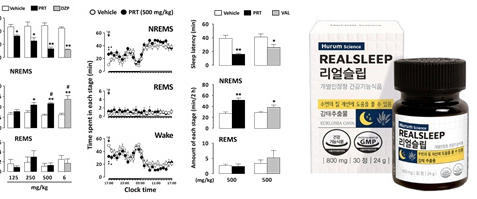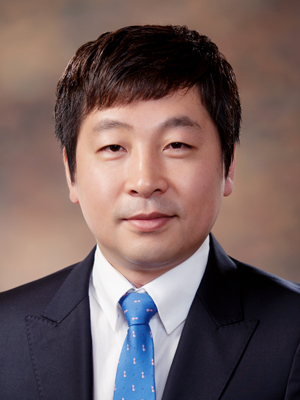커뮤니티
부경투데이
- 국립 부경대학교의 다양한 모습과 소식을 접하시면 부경대학교가 한번 더 가까워집니다.
| 해수부 140억 사업 부경대가 추진한다(PKNU undertakes 14 billion won MOF project) | |||
| 작성자 | 대외협력과 | 작성일 | 2022-05-19 |
| 조회수 | 661 | ||
| 해수부 140억 사업 부경대가 추진한다(PKNU undertakes 14 billion won MOF project) | |||||
 |
대외협력과 |  |
2022-05-19 |  |
661 |
부경대, 건강기능식품 핵심 ‘수산 고시형 기능성원료’ 국산화 나선다
- 140억 규모 해수부 ‘수산식품산업 맞춤형 기술개발사업’ 추진

△ 부경대는 수면 건강 제품 연구 등 연구역량을 기반으로 해수부 사업을 추진한다.
국내 대학과 기업들이 손잡고 해외수입 의존도가 높은 수산 기능성원료를 국산화하기 위한 대규모 연구개발 사업이 추진돼 관심을 끈다.
 국립부경대학교(총장 장영수)는 해양수산부의 2022년도 수산식품산업 맞춤형 기술개발사업에 선정돼 ‘수산물 유래 고시형 건강기능식품 개발 및 기능성표시식품 개발’ 과제(책임교수 조승목·식품공학전공·사진)를 추진한다고 19일 밝혔다.
국립부경대학교(총장 장영수)는 해양수산부의 2022년도 수산식품산업 맞춤형 기술개발사업에 선정돼 ‘수산물 유래 고시형 건강기능식품 개발 및 기능성표시식품 개발’ 과제(책임교수 조승목·식품공학전공·사진)를 추진한다고 19일 밝혔다.
이 과제는 어류, 패류, 갑각류 등 수산물에서 다양한 건강기능식품의 기능성 원료를 개발해 해외수입 의존도가 70%를 넘는 수산 기능성원료를 국내산으로 대체하고, 국내 수산식품산업 발전을 이끌기 위한 것이다.
2026년까지 정부지원금 135억 원 등 약 140억 원이 이 과제에 투입되고, 주관기관인 부경대를 비롯해 서울과기대, 서울대, 제주대, 한국식품연구원, 동의대, 경상국립대, 한국건강기능식품협회, ㈜에스앤디, ㈜노바렉스, ㈜밥스누 등이 공동연구개발기관으로 참여한다.
각 기관은 수산물에서 수면 건강, 면역, 장 건강, 혈당조절, 항산화, 피부 건강 등 다양한 기능을 가진 고시형 기능성원료를 3건 이상 등록하고, 이를 활용한 15종 이상의 건강기능식품과 기능성표시식품을 개발할 계획이다.
고시형 기능성원료는 규격과 기준에 맞추면 누구나 이를 적용한 제품을 생산할 수 있어 관련 산업 생태계를 조성하는 핵심으로 꼽힌다.
이에 따라 기관별로 수산물 유래 추출물 제조와 기능성 평가, 유망소재 도출, 유망소재 기능성 평가 및 작용기작 검증, 기능성 비교, 공정개발, 표준화 및 안전성 연구, 경제성 평가 등 연구를 체계적으로 진행해나가기로 했다.
부경대 조승목 연구 책임교수는 “수산물에서 유래한 고시형기능성원료는 농산물의 16%밖에 안 될 정도로 비중이 매우 낮다. 이번 연구과제를 통해 누구나 이용할 수 있는 고시형 기능성 원료를 개발해 어민 소득증대와 중소 수산식품기업 활성화에 도움을 줄 수 있을 것으로 기대한다.”라고 밝혔다. <부경투데이>
PKNU works on the localization of 'functional marine ingredients listed by MFDS', the core of functional food
- takes on the 14 billion won-project for 'seafood industry customized technology' by the Ministry of Oceans and Fisheries
△ Pukyong National University takes on the project promoted by the Ministry of Oceans and Fisheries based on research capabilities, such as research on sleep & health products.
Domestic universities and companies jointly promote large-scale R&D projects to localize functional raw materials for fisheries, which are highly dependent on imports, is attracting public attention.
Pukyong National University has been selected for the development project for seafood industry customized technology, 2022 by the Ministry of Oceans and Fisheries, and announced on the 19th that it will promote the 'Development of functional health foods derived from seafoods listed by MFDS and development of functionally labeled foods' (Chief Professor Cho Seung-Mock, food science and technology, from the photo).
This project is to develop functional raw materials for various healthy functional foods from marine products, such as fish, shellfish, and crustaceans, to replace functional raw materials for fishery with domestic ones, which depends on overseas imports for more than 70%, and to lead the development of the domestic seafood industry.
14 billion won, including 13.5 billion won in government subsidies, will be invested in this project by 2026. Seoul National University of Science and Technology, Seoul National University, Jeju National University, the Korea Food Research Institute, Dong-Eui University, Gyeongsang National University, the Korea Health Supplements Association, S&D, Novarex, and Bobsnu, including Pukyong National University as the leading institution, will participate as joint R&D institutions.
Each institution plans to register at least 3 functional marine ingredients listed by MFDS with various functions such as sleep health, immunity, intestinal health, blood sugar control, antioxidant, and skin health, and they plan to develop more than 15 healthy functional foods and functional labeled food products using them.
Functional marine ingredients listed by MFDS are the core of creating an ecosystem of related industries because anyone can produce a product to which it is applied if it meets the specifications and standards.
Accordingly, each institution decided to systematically conduct research on the production of seafood products-derived extracts and functional evaluations, derivation of promising materials, functional evaluation of promising materials and verification of action mechanisms, functional comparisons, process development, standardization and safety studies, and economic evaluations.
Professor Cho Seung-Mock, the chief professor for this research from Pukyong National University, said, "Functional marine ingredients listed by MFDS derived from seafood have a very low specific gravity, accounting for only 16% of agricultural products. Through this research project, I expect that it will be able to help increase the income of fishermen and revitalize aquatic food companies by developing functional raw materials listed by MFDS that anyone can use." <Pukyong Today>